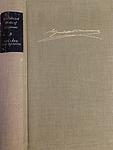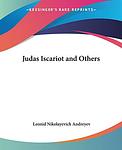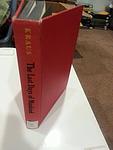The Greatest Russian, Spanish, Austrian "Drama, Fiction" Books Since 1900
Click to learn how this list is calculated.
This list represents a comprehensive and trusted collection of the greatest books. Developed through a specialized algorithm, it brings together 305 'best of' book lists to form a definitive guide to the world's most acclaimed books. For those interested in how these books are chosen, additional details can be found on the rankings page.
Genres
Drama is a genre of literature that typically deals with serious and emotional themes, often exploring the complexities of human relationships and the struggles individuals face in their lives. These books often feature intense character development and intricate plotlines, delving into the depths of human experience and the challenges of navigating the world around us. From family dramas to political intrigue, the drama genre encompasses a wide range of stories that aim to captivate readers with their raw and powerful storytelling.
Countries
Date Range
Reading Statistics
Click the button below to see how many of these books you've read!
Download
If you're interested in downloading this list as a CSV file for use in a spreadsheet application, you can easily do so by clicking the button below. Please note that to ensure a manageable file size and faster download, the CSV will include details for only the first 500 books.
Download-
1. The Cherry Orchard by Anton Chekhov
"The Cherry Orchard" is a classic play about an aristocratic Russian woman and her family as they return to their family estate, which includes a large and well-known cherry orchard. The family is on the brink of financial ruin and the estate is slated to be auctioned off. Despite various attempts to save their beloved home and orchard, they are ultimately unable to prevent the sale. The play is a poignant reflection on the changing social order and the decline of the aristocracy in Russia at the turn of the 20th century.
The 455th Greatest Book of All Time -
2. Three Sisters by Anton Chekhov
"Three Sisters" is a play that revolves around the lives of three sisters, Olga, Masha, and Irina, who live in a provincial Russian town and yearn for their former life in Moscow. The story explores their relationships, dreams, and disappointments, as well as their interactions with the military officers stationed nearby. The narrative is a poignant exploration of love, loss, and the relentless passage of time, highlighting the human struggle for meaning and happiness.
The 655th Greatest Book of All Time -
3. The Piano Teacher by Elfriede Jelinek
"The Piano Teacher" is a dark exploration of power dynamics, sexuality, and repression. The story revolves around a piano teacher at a prestigious music school in Vienna who lives with her overbearing mother in a state of emotional and sexual repression. Her life takes a turn when she becomes sexually involved with a young, self-assured student. The relationship, marked by sadomasochistic games and emotional manipulation, spirals out of control, leading to a tragic end. The book is a profound critique of bourgeois values and the oppressive structures of society.
The 1057th Greatest Book of All Time -
4. The Hive by Camilo José Cela
"The Hive" is a novel set in post-Civil War Spain, during the harsh years of Madrid's postwar recovery. It provides a gritty and realistic portrayal of the struggles faced by ordinary citizens in a society marked by deprivation and repression. The narrative is non-linear and fragmented, featuring a vast array of characters from various social classes, whose lives intertwine in a depiction of the bleakness and despair of the time. The book was initially banned in Spain due to its critical view of Franco's regime.
The 1262nd Greatest Book of All Time -
5. Solitude by Caterina Albert
"Solitude" is a novel that explores the life and struggles of a young woman living in a rural Catalan village. The protagonist is a strong-willed, independent woman who defies societal norms and expectations, leading to friction with her conservative community. The narrative examines themes of gender, societal pressures, and the struggle for personal freedom, providing a powerful critique of rural life and patriarchal society.
The 1486th Greatest Book of All Time -
6. Mother by Maxim Gorky
This novel centers around a working-class Russian woman who becomes involved in revolutionary activities after witnessing the struggles and injustices faced by her son and his comrades. Despite her initial fear and hesitation, she evolves into a dedicated activist, smuggling illegal literature and participating in strikes. The narrative provides a powerful exploration of the personal and societal transformations brought about by political activism, set against the backdrop of pre-revolutionary Russia.
The 1562nd Greatest Book of All Time -
7. Confusion by Stefan Zweig
"Confusion" is a compelling narrative that explores the intense and passionate relationship between a student and his charismatic professor. Set in the early 20th century, the story unfolds as the protagonist becomes entangled in the professor's personal life, discovering his mentor's secret past, his struggling marriage, and his hidden homosexual desires. The book presents a profound exploration of human emotions, identity, and the complexities of love, against the backdrop of the societal norms of the time.
The 2016th Greatest Book of All Time -
8. The Clay Machine-gun by Victor Pelevin
"The Clay Machine-gun" is a surreal and complex novel that explores the nature of reality and illusion. The story is set in post-Soviet Russia and follows a protagonist who has multiple identities, including a poet in 19th-century Russia, a 20th-century psychiatric patient, and a 21st-century advertising executive. The narrative moves between these identities and realities, blurring the lines between them and creating a layered and philosophical exploration of Russian society, identity, and the human psyche.
The 2266th Greatest Book of All Time -
9. The Bedbug And Selected Poetry by Vladimir Mayakovsky
"The Bedbug And Selected Poetry" is a collection of poems by Vladimir Mayakovsky, a prominent Russian poet of the early 20th century. The book features a mix of Mayakovsky's avant-garde and politically charged works, showcasing his unique style and themes of revolution, love, and the struggles of the working class. Through his powerful and dynamic verses, Mayakovsky offers readers a glimpse into the social and cultural landscape of his time, while leaving a lasting impact with his thought-provoking and emotive poetry.
The 2276th Greatest Book of All Time -
10. Nada by Carmen Laforet
"Nada" is a novel that follows the life of a young woman who moves to Barcelona to attend university after the Spanish Civil War. She stays with her eccentric relatives who live in a grand, but decaying mansion. The protagonist struggles to find her identity and independence while dealing with poverty, repression, and the emotional instability of her relatives. The story is a powerful exploration of despair, alienation, and the loss of innocence.
The 2443rd Greatest Book of All Time -
11. Time of Silence by Luis Martín-Santos
"Time of Silence" is a complex narrative that follows the life of a young doctor living in Madrid during the Franco regime. Throughout the novel, he becomes embroiled in a series of unfortunate events, including an affair with a married woman, which leads to tragic consequences. The novel is known for its innovative narrative techniques and its critical depiction of the moral and political climate of Spain under Franco's rule.
The 2443rd Greatest Book of All Time -
12. Bohemian Lights by Ramón del Valle-Inclán
"Bohemian Lights" is a novel set in early 20th century Madrid, Spain, featuring a group of bohemian artists and intellectuals as they navigate poverty, passion, and the pursuit of their crafts. The narrative captures their struggles and triumphs, the vibrant and decadent world they inhabit, and their unyielding commitment to their artistic ideals. The novel offers a vivid portrayal of bohemian life, with its blend of joy, despair, and relentless creative energy.
The 2605th Greatest Book of All Time -
13. Our Lord Don Quixote by Miguel de Unamuno
The book presents a philosophical and introspective analysis of the classic literary character Don Quixote, delving into the existential and moral dimensions of his adventures. The author reflects on the nature of reality, the importance of ideals, and the interplay between sanity and madness, arguing that Quixote's chivalric quests and his refusal to concede to the limitations of his mundane world embody a profound and heroic affirmation of human imagination and spirit. Through this exploration, the work becomes a meditation on the human condition and the enduring power of fiction to inspire and give life meaning.
The 2777th Greatest Book of All Time -
14. The Lower Depths by Maxim Gorky
The book is a stark depiction of the lives of the impoverished and dispossessed at the bottom of the Russian social ladder in the early 20th century. Set in a squalid shelter, it presents a group of destitute individuals from various backgrounds—thieves, prostitutes, and the down-and-out—who share their stories and philosophies as they grapple with the harsh realities of poverty and survival. The narrative delves into themes of human suffering, the struggle for dignity, and the elusive nature of truth, offering a grim commentary on the social conditions of the time and the human condition itself.
The 3011th Greatest Book of All Time -
15. A Sorrow Beyond Dreams by Peter Handke
This book is a poignant exploration of the author's mother's life and her struggle with depression, ultimately leading to her suicide. It provides a deeply personal and raw account of the author's attempts to understand his mother's despair and the societal constraints that contributed to it. The narrative is a profound reflection on memory, loss, and the complexity of human emotions, offering a stark and moving portrayal of a woman's life in a rigid, post-war society.
The 3042nd Greatest Book of All Time -
16. All Souls by Javier Marías
"All Souls" is a novel that follows the experiences of a Spanish professor teaching at Oxford University. His life is filled with eccentric colleagues, a puzzling love affair, and a mysterious sense of intrigue. As the protagonist navigates through the academic world, he becomes entangled in a web of personal relationships and bureaucratic intricacies. The book is a blend of romance, suspense, and satire, with a poignant exploration of memory, longing, and the ephemeral nature of human relationships.
The 3428th Greatest Book of All Time -
17. Little Devil by Fedor Sologub
"Little Devil" is a dark and symbolic tale set in pre-revolutionary Russia, exploring the themes of evil and corruption through the eyes of a young boy. The protagonist, an outcast in his rural village, is both tormented and fascinated by the malevolent forces he perceives around him. As he delves deeper into his own imagination and the sinister aspects of human nature, the line between reality and fantasy blurs, leading to a series of tragic events. The novel delves into the psychological and moral decay of its characters, reflecting the broader societal decay of the time.
The 3642nd Greatest Book of All Time -
18. Why Is There Salt In The Sea? by Brigitte Schwaiger
The novel explores the life of a young Austrian woman who finds herself in a stifling marriage with a fisherman in a small coastal village. As she grapples with the mundane and oppressive nature of her daily life, she yearns for freedom and self-discovery. The sea, with its salt, becomes a metaphor for her tears and the bitterness she experiences, as well as the vast possibilities that lie beyond her current existence. Her internal struggle and the choices she faces reflect the broader themes of women's liberation and the search for identity in a world that often limits female autonomy.
The 3743rd Greatest Book of All Time -
19. Christmas At The Ivanovs' by Alexander Vvedensky
"Christmas at the Ivanovs'" is a satirical play that delves into the absurdities of Soviet life during the early 20th century. The narrative unfolds during a Christmas celebration at the Ivanov family's home, where a series of bizarre and surreal events take place. The characters, including a detective, a poet, and various family members, engage in nonsensical dialogues and actions, reflecting the author's avant-garde approach to theater. The play critiques the disconnect between the state's ideological propaganda and the grim realities of everyday life, using dark humor and chaotic scenes to challenge the audience's perception of normalcy and rationality within a society under strict political control.
The 3787th Greatest Book of All Time -
20. The Zone by Sergei Dovlatov
"The Zone" is a semi-autobiographical novel that follows the life of a writer who is confined to a Soviet labor camp. Through a series of vignettes, the protagonist reflects on his experiences in the camp, the absurdities of the Soviet system, and the struggles of maintaining his identity and integrity in the face of oppression. With dark humor and sharp observations, the book offers a poignant and satirical portrayal of life in the Soviet Union.
The 4071st Greatest Book of All Time -
21. Farewell To Matyora by Valentin Rasputin
The book is a poignant exploration of the tension between progress and tradition, set in a small Siberian village that is doomed to be submerged by the construction of a hydroelectric dam. As the government mandates the relocation of the village's inhabitants, the narrative delves into the lives of the villagers who are grappling with the loss of their ancestral home and way of life. The story is a meditation on the cost of modernization, the deep connection between people and their land, and the inevitable passing of time that brings change, often at the expense of cultural heritage and personal identity. Through the villagers' resistance and sorrow, the novel examines themes of environmental impact, the clash of ideologies, and the resilience of the human spirit in the face of displacement.
The 4083rd Greatest Book of All Time -
22. Creatures that Once Were Men by Maxim Gorky
"Creatures that Once Were Men" is a collection of short stories that depict the harsh realities of life in the lower classes of Russian society. The stories are set in a night refuge for the homeless, where the characters, despite their grim circumstances, strive to maintain their humanity. Through their struggles, the author explores themes of poverty, addiction, despair, and the human spirit's resilience.
The 4151st Greatest Book of All Time -
23. Judas Iscariot by Leonid Andreyev
The book presents a reimagining of the character of Judas Iscariot, traditionally known as the betrayer of Jesus Christ. It delves into the psychological and moral complexities of Judas, exploring his inner turmoil, motivations, and the factors that may have led him to commit the act of betrayal. The narrative seeks to humanize Judas, offering a nuanced perspective that challenges the conventional vilification he has received throughout history. Through this character study, the book examines themes of guilt, redemption, and the nature of evil, ultimately raising questions about free will and the role of individuals within the grander schemes of destiny and divine plans.
The 4672nd Greatest Book of All Time -
24. The Last Days of Mankind by Karl Kraus
"The Last Days of Mankind" is a satirical play that provides a critical commentary on the socio-political climate during World War I. The narrative presents a stark portrayal of the absurdity of war and the destructive forces of propaganda, bureaucracy, and nationalism. The author uses a variety of literary techniques, including parody, satire, and direct quotes from contemporary sources, to highlight the folly and tragedy of war. The play is known for its unique style, rich language, and its profound critique of society and culture during a time of great upheaval and conflict.
The 4688th Greatest Book of All Time -
25. The Heretic by Miguel Delibes
"The Heretic" is a historical novel set during the Spanish Inquisition. It follows the life of a man born in 16th century Spain, who, despite being raised in a strictly Catholic environment, begins to question the teachings and practices of the Church. As he grows older, he becomes involved in the Protestant Reformation, risking his life in a society where heresy is punishable by death. This book explores themes of faith, religious persecution, and the struggle for freedom of thought.
The 4759th Greatest Book of All Time
Reading Statistics
Click the button below to see how many of these books you've read!
Download
If you're interested in downloading this list as a CSV file for use in a spreadsheet application, you can easily do so by clicking the button below. Please note that to ensure a manageable file size and faster download, the CSV will include details for only the first 500 books.
Download





















